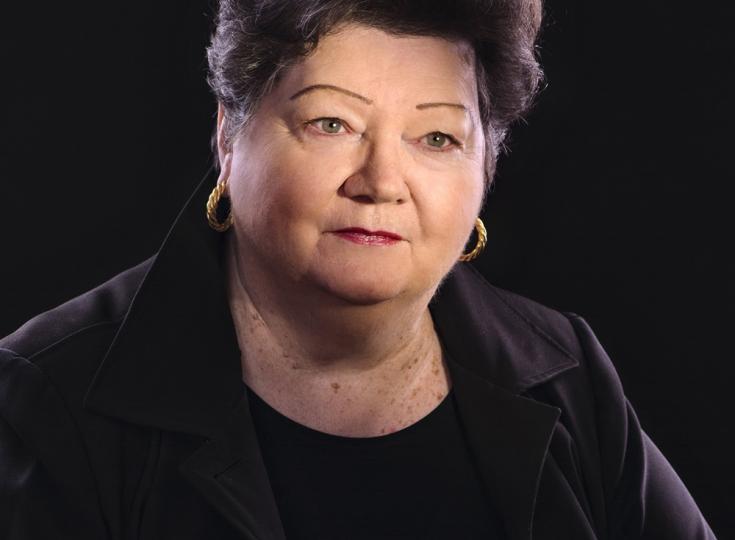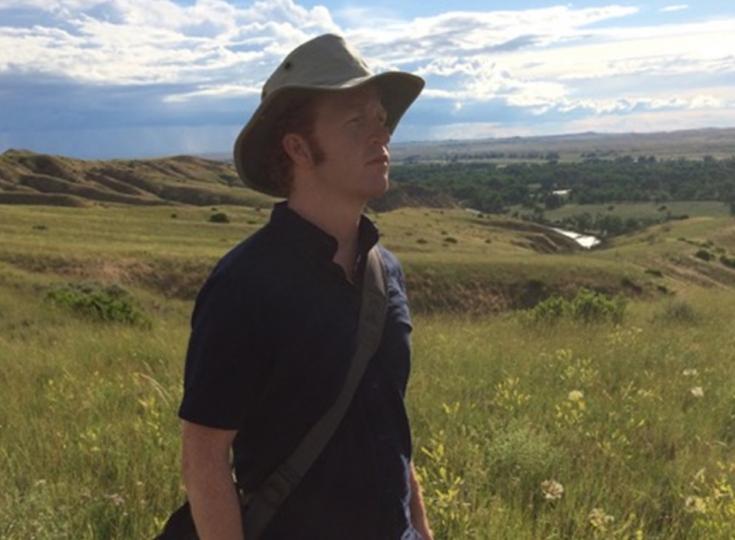Ray Green - Bond-like Thrillers Involving Organized Crime

Ray Green had a career spanning some 30 years in the electronics manufacturing industry. For much of that time, he was operating at Director level in several different companies, well-versed in the world of business and corporate politics. Buyout, Ray's first novel, is based on his actual experience of carrying out a management buyout. It is, however, a work of fiction. The sequel, 'Payback', charts the fortunes of the principal characters on 'Buyout' over the next few years, and 'Chinese Whispers' is the third book in the series. As our Author of the Day, Green tells us all about this book and talks about how his experiences inspire his work.
Please give us a short introduction to what Chinese Whispers is about.
A UK-based electronics company, Romotive, designs and manufactures dashboard instrument clusters for luxury cars. A decision to outsource manufacturing to a Chinese company, in an effort to reduce costs, turns out to have disastrous results in terms of quality and on-time delivery performance, while also failing to deliver the promised cost savings. As Romotive's local management team seem unable to resolve these problems, they are removed by the company's US-based parent company and Roy Groves, a former director of the company, is brought in to take charge and sort things out.
Roy puts his own team in place and sets out to get to the bottom of what is going on. He discovers that the Chinese subcontractor is using inferior components and that large sums of money are somehow being creamed off. As he digs further, he uncovers the shocking truth that a Chinese Triad has infiltrated and taken control of the subcontractor, illegally skimming off huge sums of money from Romotive. When he tries to extricate his company from this disastrous situation he is threatened by the Triad with dire consequences. when he refuses to back off, his daughter is kidnapped and taken to an unknown location in China with the threat that she will die if he persists. He enlists the help of his daughter's boyfriend, ex-special forces operative Tim Steele, who embarks on a desperate solo mission to China to try to find and rescue Roy's daughter. What follows is a desperate, violent struggle whose outcome is always in doubt, both for the fate of Roy's company, and the life of his daughter.
Tell us more about Roy Groves. What makes him tick?
Roy is a talented manager and businessman, with a track record of turning around ailing companies. He has more than enough money to give his family a comfortable life, having made a handsome return on a previous management buyout and stock market flotation, so money is no longer his prime motivator. Now, he gets his satisfaction from seeing company performance improve, profits increase, and employee satisfaction increase. He seems to have a knack of involving the workforce and getting them behind him in his efforts to drive a company forward. He actively hates the corporate politics which permeate the business world, though he has proven himself adept at navigating them when necessary. He certainly never expected to find himself battling organised crime, yet when push comes to shove, with his daughter's life on the line, he finds himself equal to the challenge.
What inspired you to write about someone who collapses and dies at an airport during a business trip?
I wanted a dramatic start to the book which would suggest that there were people who would stop at nothing to prevent the truth about the Chinese subcontractor coming to light. I hit upon the idea that Roy would send one of his trusted colleagues to investigate and he'd uncover too much. His death, although dressed up as a tragic act of nature, would arouse Roy's suspicions and lead him to investigate further, triggering the whole subsequent chain of events which form the meat of the book.
This book deals with organised crime. Why do did you pick this angle?
In my own business career, I'd encountered first-hand many unexpected downsides to offshore subcontracting, including corruption and financial irregularities. I thought, 'Why not take it to a whole new level? Let's involve organised crime: vicious criminals who will kill without compunction to achieve their objectives'. Although I had never, personally, encountered such extreme criminality in my own career, I am in no doubt whatsoever that it does happen in real life.
Chinese Whispers is the third book in a series. How does it tie in with the other two books? Can it be read as a standalone?
The series charts the fortunes of the principal character, Roy Groves, through the various twists and turns of his business career which had already involved clashes with blackmail and even murder. It undoubtedly helps if the reader has read the previous books to get a full understanding of the preceding events, but I have been very careful to include enough snippets of the backstory to provide context to the current situation. Therefore, I would say Chinese Whispers definitely can be read as a standalone, but the experience might be richer if the other books had been read first.
Besides writing, what other secret skills do you have?
Oh my goodness - I have very few secrets, but I guess I do have some other skills. Like Roy Groves, I would say I'm pretty good at running a business ... or 'was' I should say - I've left the corporate world behind now. I miss the comradeship and sense of achievement, but don't miss for one second the corporate backstabbing and politics. I'm also pretty handy at do-it yourself and car maintenance. Most of all, I like to think I'm a good father; the way my two daughters have turned out tells me that my wife, Rhonda, and I have done a pretty good job. Finally - and for some reason this seems to crease people up - I get a weird satisfaction out of ironing! There's something about the transformation of a tangled heap of clothes in the laundry basket to several neat, crease-free piles which is immensely satisfying. Is there some subconscious link to the process of turning a basket-case of a company into an efficient, profitable operation? I don't know ...
Which of your characters has been the most challenging to write for?
In a way, I guess Roy Groves himself. You'll have guessed by now that he's loosely based on me. Therefore when I write about his skills and abilities, I can't help feeling that I'm somehow guilty of exaggerating my own, which is something I feel desperately uncomfortable about. I keep telling myself 'It's only a story' but even so I don't like doing it. In the end I've tried to mitigate this aspect by also revealing some of Roy's weaknesses, and insecurities, some of these also mirroring my own.
When working on a novel, how do you immerse yourself in the main characters' lives?
I always start out with a list of characters and a plot outline before I even start to write the manuscript itself. I need this framework to hang on to as I work my way through the book. However, I tend to find that, before long, the characters sort of take on a life of their own, revealing more of themselves to me, and informing me how to portray them. I don't know if that sounds kind of pretentious, but honestly, that's what seems to happen.
What did you have the most fun with when writing this book?
Oh, definitely the guns, the aircraft, the whole fast-moving thriller bit. Thank God for the internet as I know nothing about guns or aircraft in real life!
What genre of books do you like to read? Do you limit yourself to only the genre that you write yourself?
I have pretty eclectic tastes. I love historical dramas (Roman times, ancient British etc.). I also like dark comedy-thrillers (I tried to pull off this genre in book 4 of the Roy Groves series, 'Horizontal Living' - the feedback I've had said I succeeded!). Other than that, I like thrillers of almost every flavour.
Some readers called Chinese Whispers a "Bond-like thriller" - how did you pull this off?
I don't know really - maybe I've watched too many James Bond movies!
Do you have any interesting writing habits? What is an average writing day like for you?
Ernest Hemingway once said 'Write drunk, edit sober'. I'm with him on this - I'm often to be found with a glass of something alcoholic at my side when writing, but never when editing. I don't really have an 'average' writing day - it depends how I'm feeling and what other things on my 'to do' list are beckoning. Some days I don't write at all, but others I might put in perhaps four or five hours. The moment writing becomes a chore where I feel obliged to write x number of words every day will be the moment I give it up. I have to be in the mood and I have to enjoy it.
What are you working on right now?
The 'Roy Groves Thriller' series came to a natural conclusion with the publication of the fourth book 'Horizontal Living'. After that, I decided to start a completely new series, 'The Identity Thrillers'. The first book in that series 'Lost Identity' is a complete departure from my previous work: it's a psychological crime thriller with no reference whatsoever to business or finance. That book was published almost a year ago. Right now, I'm working on a sequel which should be published in the first half of 2019. At the moment, I haven't decide on a title; the only thing that's certain is that it will include the word 'Identity'.
Where can our readers discover more of your work or interact with you?
Visit my publisher's website - Mainsail Books https://mainsailbooks.co.uk/





